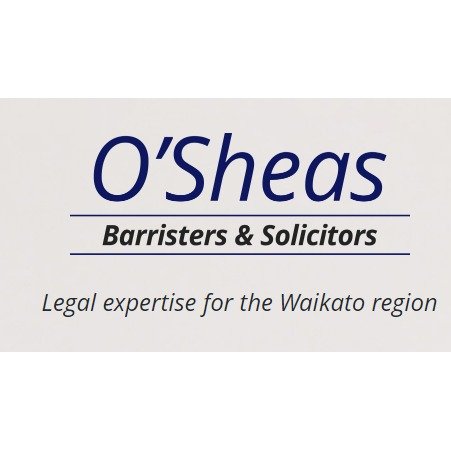Best Disability Lawyers in Hamilton
Share your needs with us, get contacted by law firms.
Free. Takes 2 min.
List of the best lawyers in Hamilton, New Zealand
About Disability Law in Hamilton, New Zealand
Disability law in Hamilton, New Zealand, falls under the wider scope of New Zealand's Human Rights Act of 1993 and the Disability (United Nations Convention on the Rights of Persons with Disabilities) Act 2008. These laws uphold the rights and interests of people living with disabilities, ensuring they are treated with dignity and have equal opportunities in every aspect of societal participation. They cover various fields including but not limited to health, education, employment, accessibility, and discrimination.
Why You May Need a Lawyer
Engaging a lawyer in matters pertaining to disability may be necessary in various circumstances. These include instances of discrimination at the workplace or in education, disputes over accessibility to public or private facilities, issues concerning financial and medical support services, or in dealing with other legal aspects of living with a disability, such as making provision for a special needs trust. A lawyer can help you understand your rights, interpret legal complexities and represent your best interests.
Local Laws Overview
The legislation pertaining to disability in Hamilton majorly follows the framework established at the national level in New Zealand. Notable legislation includes the Human Rights Act 1993, which prohibits discrimination based on disability. The Health and Disability Commissioner Act 1994 advocates for patient rights in healthcare services, while the New Zealand Public Health and Disability Act 2000 centers on the functioning of the health and disability sector. The Building Act 2004 addresses accessibility concerns in public buildings.
Frequently Asked Questions
What constitutes discrimination based on disability?
Discrimination based on disability refers to being treated unfairly or less favourably because of either a physical, mental, or intellectual disability. This can occur in various settings, including workplaces, education institutions, or while accessing public services.
How does New Zealand law protect people with disabilities?
New Zealand law prohibits discrimination based on disability. Any complaints can be filed with The Human Rights Commission or the Health and Disability Commissioner. There are also provisions for legal redress through the court system.
What is the role of a disability rights lawyer?
A disability rights lawyer interprets disability law, advises on legal rights and solutions, represents clients during disputes, and can help in filing complaints pertaining to discrimination or violation of rights.
How can one access disability support services in Hamilton?
Support services can be approached directly or through referrals from doctors, specialists or social workers. The New Zealand Ministry of Health funds Disability Support Services and provides comprehensive information on how to avail these services.
Can businesses be held accountable for not providing access to persons with disabilities?
Yes, under the Building Act 2004, all public facilities are required to provide reasonable and adequate access to people with disabilities. Failure to do so can result in legal action.
Additional Resources
The Human Rights Commission, Health and Disability Commissioner, Ministry of Health, and the New Zealand Law Society offer a wealth of information on disability rights. The Disabled Persons Assembly and Disability Connect are support organizations that advocate for disability rights and services.
Next Steps
If you need legal assistance, it is advisable to consult a lawyer practicing in disability rights or engage the services of a legal firm specializing in disability law. Legal aid may be available for those who require it. You could also contact disability support services for initial advice and guidance, or make direct inquiries with the Human Rights Commission or Health and Disability Commissioner.
Lawzana helps you find the best lawyers and law firms in Hamilton through a curated and pre-screened list of qualified legal professionals. Our platform offers rankings and detailed profiles of attorneys and law firms, allowing you to compare based on practice areas, including Disability, experience, and client feedback.
Each profile includes a description of the firm's areas of practice, client reviews, team members and partners, year of establishment, spoken languages, office locations, contact information, social media presence, and any published articles or resources. Most firms on our platform speak English and are experienced in both local and international legal matters.
Get a quote from top-rated law firms in Hamilton, New Zealand — quickly, securely, and without unnecessary hassle.
Disclaimer:
The information provided on this page is for general informational purposes only and does not constitute legal advice. While we strive to ensure the accuracy and relevance of the content, legal information may change over time, and interpretations of the law can vary. You should always consult with a qualified legal professional for advice specific to your situation.
We disclaim all liability for actions taken or not taken based on the content of this page. If you believe any information is incorrect or outdated, please contact us, and we will review and update it where appropriate.








